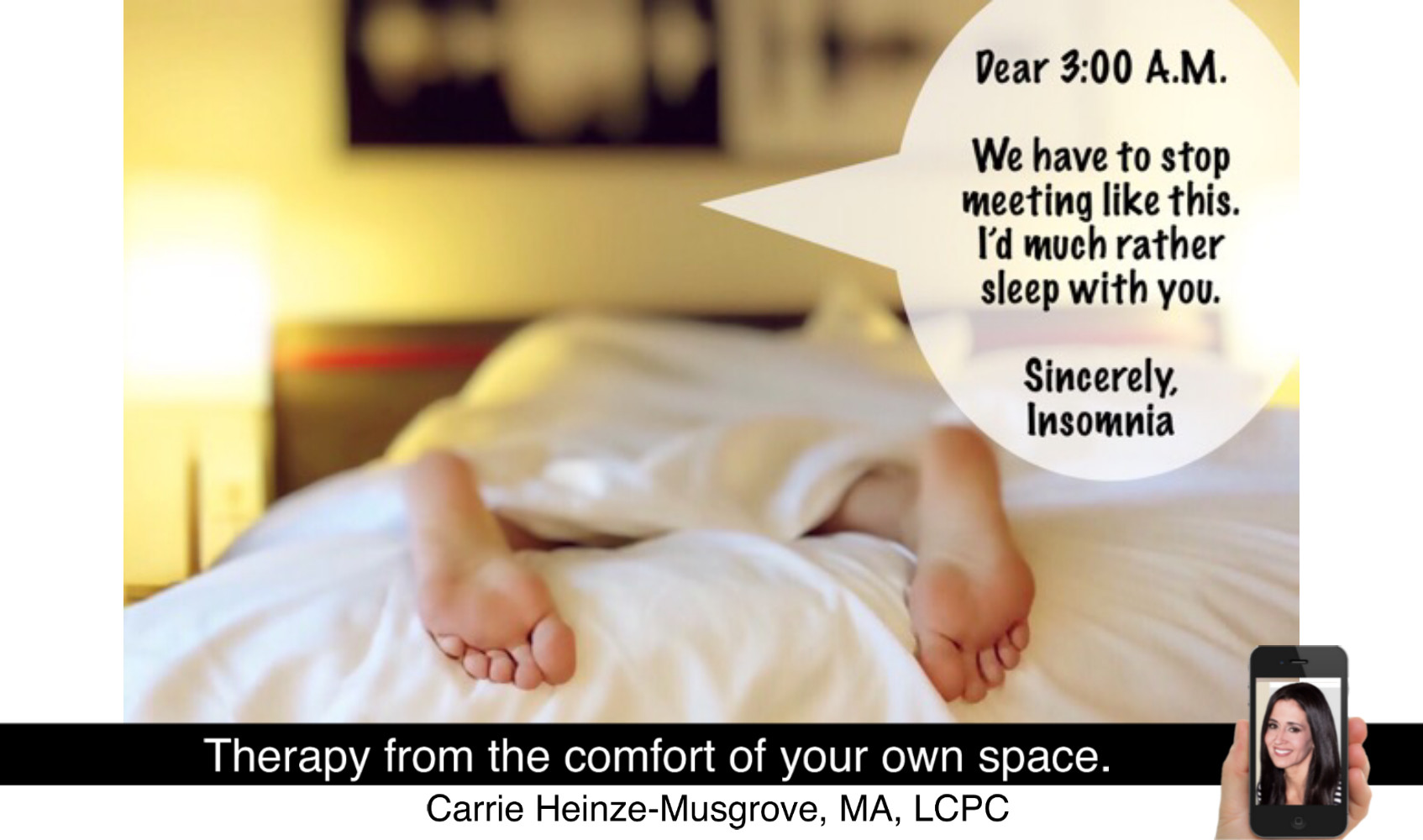There is something about the hours between 12:00 a.m. and 6 a.m. that can make you feel the weight of the world.
Perhaps the conversation in your head goes a little like this…
Okay. If I fall asleep in 2 minutes from now, I can skip breakfast. I’ll drive real fast to get to work, which should save me 10 minutes. I can set the alarm for 6:00 and that will give me 2 hours and 16 minutes of sleep. Ugh. I hate work. Did I set the alarm already? Why couldn’t I stick up for myself yesterday? Could he be talking to her again? What was that phone call? I can’t seem to get comfortable. My bed is made of rocks. Crap, I have to pick up my sister. I should have told her no… what was I thinking? Did I pay the electric bill? Can’t sleep. Can’t sleep. I’m hot. I don’t need sleep. Who needs sleep? Maybe if I sleep with my feet out. Ugh. The monsters will get me with my feet out. Okay…mind…I REALLY need to sleep. Really now. NO, REALLY. Peaceful thoughts. Restful thoughts. Go! I set the alarm right?
Sound familiar?
Do you wish you had a switch to shut your thoughts off? Do you think about moments you’ve tried so hard to forget? Does your mind decide to rehash and obsess about the past or worry about the future when you lay your head down? Do you beg your brain to shut down? Do you become consumed with not sleeping and worry about how tired you’re going to be?
We do know that chronic insomnia can actually increase a person’s chances of developing an anxiety disorder and depression. When we can’t sleep, we often become anxious about not sleeping. And over time, anxiety increases the likelihood of becoming depressed. Not only is insomnia a trigger for depression and anxiety, but also depression and anxiety can cause and/or exacerbate symptoms of insomnia. It’s a relentless cycle.
If you think you have may have insomnia or another sleep disorder, there is help out there. Although there is nothing wrong with medication to help with occasional sleeplessness, but no one wants to endure racing thoughts and poor sleep on a regular basis. Taking sleeping pills for the rest of your life is not a good option. If you’re not sleeping, you’re not functioning. It doesn’t have to be this way.
Discuss the problem with your doctor or a therapist. Many sleep disorders can be treated with non-drug options. Treatment often involves learning to control your thoughts and managing or reducing your anxiety. Meeting with a therapist can have a huge impact on improving your sleep quality, mood, and overall quality of life.
Carrie






